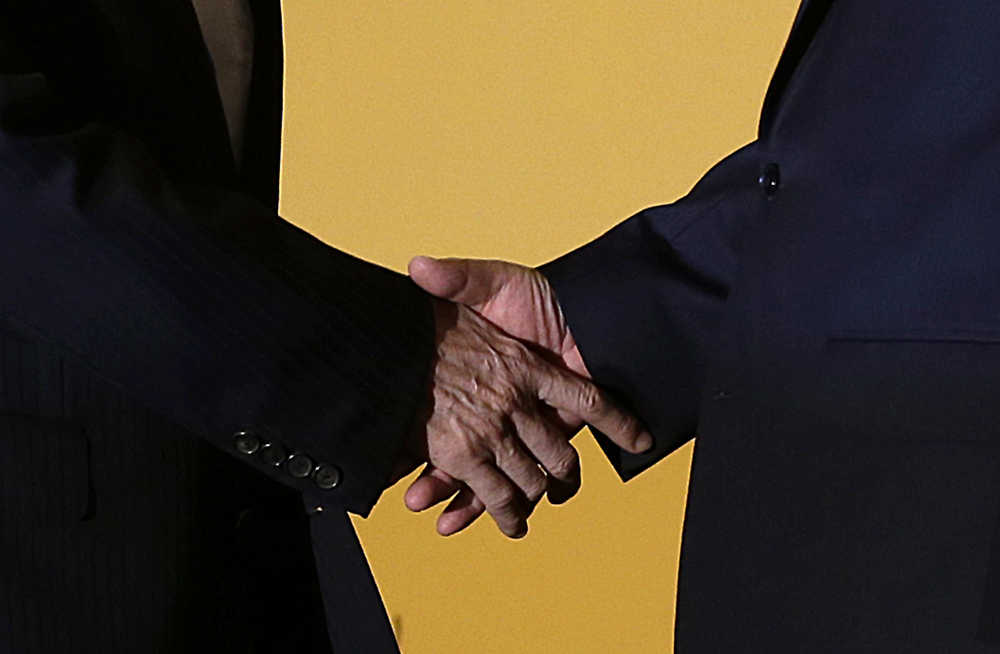It was just a handshake. Just two prosperous-looking men in dark suits walking across a hotel meeting room to say hello.
But, of course, it wasn’t. It was highly choreographed political theater, a gesture that had been discussed and negotiated for more than two years. And now, the leaders of China and Taiwan, two rivals whose hatred for each other had once seemed poised to draw the world into nuclear war, were shaking hands and smiling for hundreds of cameras. They kept it up for a full minute, turning together so everyone in the cavernous room could capture the moment from the proper angle.
For decades, that handshake had seemed impossible.
Sixty-six years ago, in 1949, Chiang Kai-shek retreated to an island across the Taiwan Strait as Mao Zedong’s forces took control of mainland China. Each man claimed to be the true leader of all of China. Each claimed the other was an illegal occupier. In the depths of the Cold War, the world lined up behind their favorite: the Eastern Bloc behind Mao and Beijing, the West behind Chiang and Taiwan.
Slowly, though, the enmity faded. Talk of war was heard less and less. Money became a common language.
First Taiwan got rich, in part by investing the wealth that Chiang’s forces had carried with them on their retreat, becoming an industrial powerhouse that churned out cheap electronics. Then, after China opened its economy, Chinese factories became the place to go for cheap consumer goods. Eventually, Taiwanese investors poured billions of dollars into the mainland.
By then, Taiwan had become an international stepchild, a not-quite country abandoned by the United Nations and forced to compete in the Olympics as Chinese Taipei. But if China became far more powerful, Taiwan wasn’t just going to give up.
Bitterness, both sides saw, was not going to achieve very much.
Which is why at 3 p.m. Saturday, China’s Xi Jinping and Taiwan’s Ma Ying-jeou entered from either side of a ballroom at Singapore’s Shangri-La Hotel, walked up to one another and shook hands.
They stood there long enough so each could try out a variety of smiles: effusive, diplomatic, maybe even coy. Stuttering shadows danced behind them as hundreds of cameras clicked on and on.
You could endlessly try to parse the moment. What did it mean that Ma kept up his brightest politician smile as Xi started to look bored? Why did Ma keep Xi’s hand pulled so close?
But the men wanted no other news. Even the backdrop — a plain yellow wall — was selected to be neutral, neither the red of China nor the blue of Ma’s Kuomintang party.
They made sure the handshake itself was the news. And it was.

